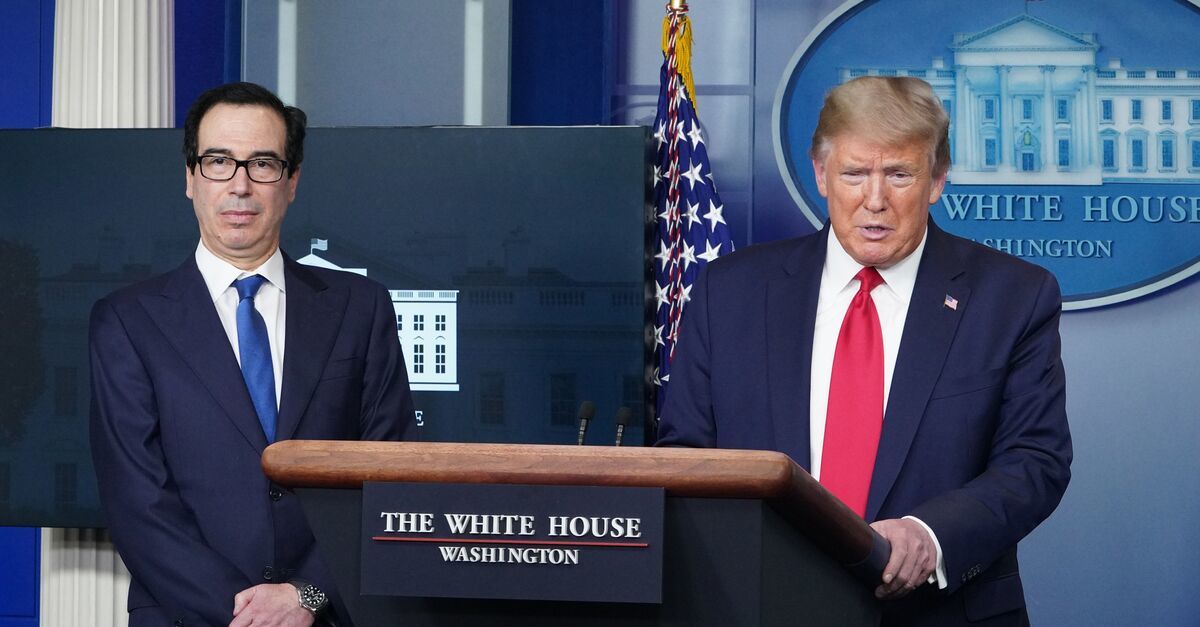
The Supreme Court of the United States granted certiorari Friday in two cases challenging the Trump administration’s distribution of $8 billion dollars of Coronavirus Aid, Relief, and Economic Security (CARES) Act funding. The consolidated cases are Mnuchin v. Confederated Tribes of the Chehalis Reservation and Alaska Native Village Corporation Association v. Confederated Tribes of the Chehalis Reservation.
The aid was to be given to “tribal governments” and was specifically earmarked for easing the monetary burdens of the COVID-19 fallout. A group of tribal governments alleged in a federal lawsuit that the aid meant for them actually went to more than 230 Alaska Native for-profit corporations (ANCs).
Congress statutorily created a different relationship with Alaska Natives from what it has with Native Americans in the lower 48 states. Instead of using reservations, “regional corporations” and “village corporations” were created in Alaska. These ANCs are private corporations with shareholders that include both Indians and non-Indians.
When Congress authorized the treasury secretary to hand out CARES Act funding, it was to “Indian tribes as defined in the Indian Self-Determination and Education Assistance Act.” That definition was as “any Indian tribe, band, nation, or other organized group or community, including any Alaska Native village or regional or village corporation . . . which is recognized as eligible for the special programs and services provided by the United States to Indians because of their status as Indians.”
The plaintiff tribal governments claimed that funds diverted to the corporations deprived them of basic needs, as CARES Act funding was its only potential source of assitance. Among other things, the tribal governments required CARES assistance to “address the needs of its homeless families as well as of the many intergenerational families who live in overcrowded substandard housing, lacking water and sewer services.” Further, because at the time of filing, there was no airline service due to the pandemic, it was impossible for the tribes to obtain important sanitary products. The ANCs, claimed the plaintiffs, had the ability to seek alternative sources of funding.
The Tribal governments prevailed at the district court level; the U.S. Court of Appeals for the District of Columbia Circuit agreed that the corporations were not “Indian tribes.” The D.C. Circuit Court ruled that only Alaska Native corporations that are formally recognized qualify as Indian tribes; further, it noted that “recognition” is a “legal term of art” in Indian law and the corporations have never been recognized in this formal sense. (Recognition gives tribes “a government-to-government relationship with the United States” and a host of other benefits.)
Both the treasury secretary and the Alaska Native corporations petitioned for certiorari, arguing that the D.C. Circuit’s ruling conflicts with the Congressional intent of the CARES Act and related Ninth Circuit precedent.
In a statement to Law&Crime, Cherokee Nation Principal Chief Chuck Hoskin Jr. said:
“Congress intended for tribal governments, not Alaska corporate interests, to share in CARES Act funds for Indian Country. Too much is at stake on the COVID response and recovery efforts in Indian Country and contrary to Congressional intent, if funds are siphoned away. We look forward to the U.S. Supreme Court upholding the appeals court’s rejection of Alaska Native Corporations eligibility of CARES Act funds so that these much-needed dollars will finally be distributed to tribal governments who are the rightful recipients and will help their citizens rebuild from what is the worst public health crisis in generations.”
The ANCSA Regional Association and Alaska Native Village Corporation Association issued a statement saying that they, “welcome the Supreme Court’s decision” to accept the case. The statement continued, “As Alaska’s harsh winter season rages on, Alaska Native people and Alaska Native communities continue to suffer disproportionately from the devastating effects of the pandemic. The latest COVID-19 relief bill did not include funds for tribal organizations — making it imperative for Alaska Native corporations (ANCs) to finally gain access to the CARES Act tribal funds Congress intended for us last spring. This long overdue emergency assistance is critical to thousands of Alaska Native People who rely on ANCs for vital health, education and social service programs.”
The statement continued:
“We hold strong our belief that Alaska Native people should not be punished for the unique tribal system that Congress established for the state 50 years ago. Nor should they be denied critical aid in a global pandemic because of a law’s use of commas. We are simply asking for Alaska Native people to receive the same support provided to millions of other Americans.”
This piece has been edited to include comment from Chief Hoskin and the above statement from the ANCSA.
[Photo by MANDEL NGAN/AFP via Getty Images]
Have a tip we should know? [email protected]